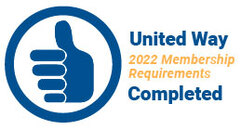|
Last time, we discussed stigma related to substance abuse. It is natural to look at someone else and make judgments. It is easy to assume we know about a person based on their appearance or actions. But, are our perceptions accurate? Are we projecting our personal biases on to others? Are these projections based on truth or opinion?
Stigma is powerful, complex and dynamic. Stigma can cause problems for people in substance use that are bigger than addiction alone. Stigma keeps people paralyzed in shame instead of hope and in isolation instead of community; defining a person by their addiction shuts them off from treatment and help. Stigma can be internalized, so the person believes what stigma says about them. Stigma not only affects the person, but also their family, friends, and even those who try to help them. They may face the same judgement, shame or barriers of the person who is in addiction. The stigma may come in words or thoughts. The underlying attitudes allies may face are: Why would you waste your time with THOSE people? There is no hope for those in addiction. What did you do wrong to cause this? How could you allow this to happen? One way to combat stigma is to recognize the stigma we hold personally. We may not realize the beliefs, assumptions and thoughts we have that stigmatize others. The Central East Division Addiction Technology Transfer includes the following questions in its Anti-Stigma Toolkit to help people consider their own levels of internal bias: Do you believe that those who are struggling with addiction are weak, lazy or immoral? Do you believe some addictions are worse than others? For example: is it worse to be addicted to illegal drugs than prescription drugs? Do you believe that some people are beyond help, that they will never get better? Do you believe that some treatments for substance abuse are better than others? For example, do you believe that abstinence is better than medically-assisted treatment? Do you believe that there is only one path to recovery, like a 12-steps program? Another powerful tool in breaking stigma is to allow individuals and family members to tell their story. It is easy to stigmatize people we don’t know. The judgement and condemnation of stigma silences individuals and makes them fearful to share their journey. Taking the time to listen, understand, and recognize the person behind the label offers dignity and respect to someone who may have lost belief in themselves. Seeing acceptance in your eyes may be a small encouragement that opens the person to the possibility of healing. Learn as much as you can about substance use, treatment, prevention, and recovery. Share what you have learned. As you notice misinformation and inaccuracies in interactions with others, speak up and challenge mistaken ideas. Don’t use stigmatizing language. Calling someone a junkie or addict does not help them rise out of that life style. The old adage that sticks and stones may break my bones, but words can never hurt me denies the negative power of words that promote shame and judgment and keep a person in the hopeless state that crushes hope of recovery. Stigma never helps. It can be broken and stopped. When we recognize the power of stigma and its negative consequences we begin the change process of healing. Addiction doesn’t have to be the end. Treatment works. Recovery is possible. If you or someone you know is ready to seek treatment, please call the Quick Response Team at 765-490-0381.
0 Comments
Your comment will be posted after it is approved.
Leave a Reply. |
AuthorLynn Saylor is the AmeriCorps member working with the United Against Opioid Abuse Initiative alongside the White County United Way. She is a major facilitator of the United Council on Opioids serving White County and a regular contributor to local media. Archives
October 2020
Categories
All
|

 RSS Feed
RSS Feed
